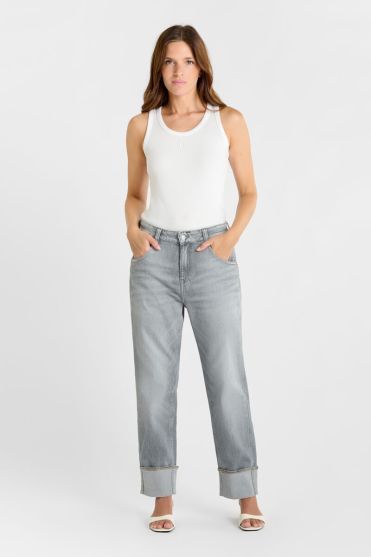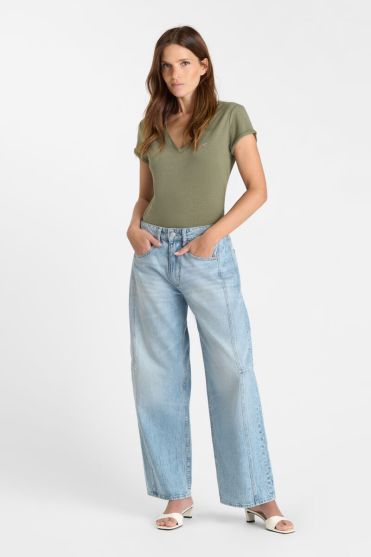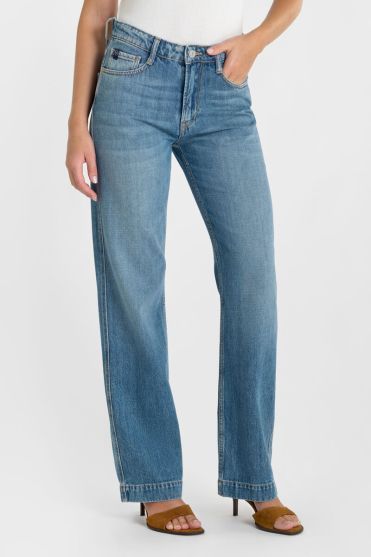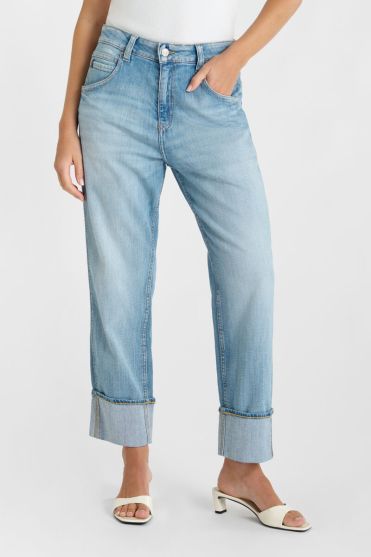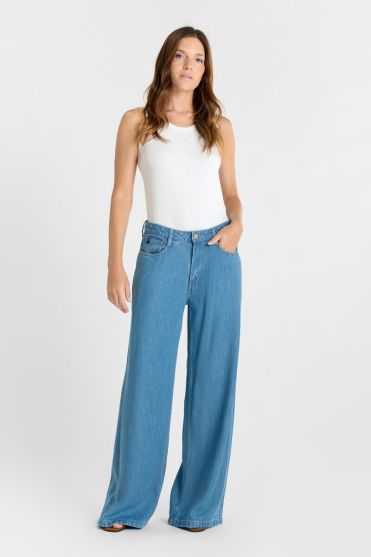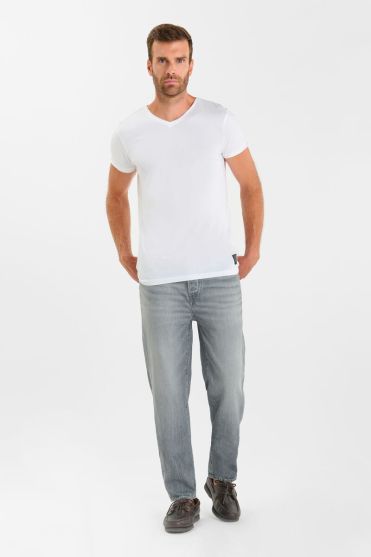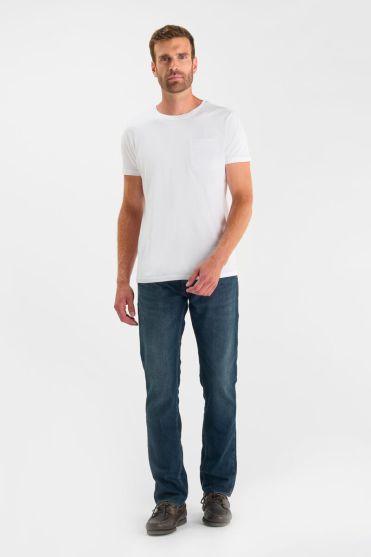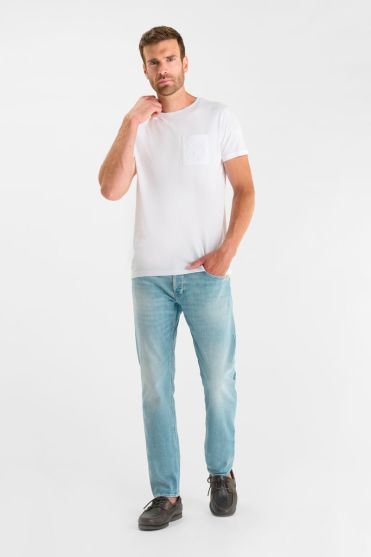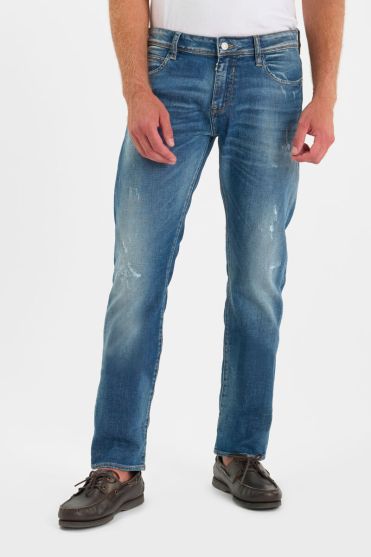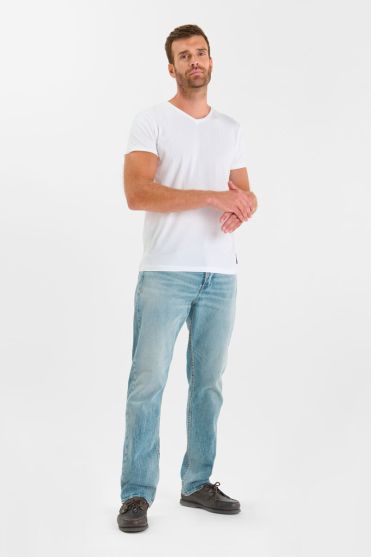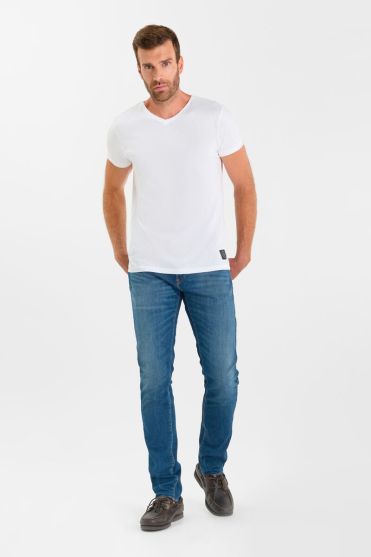3 common misconceptions about denim
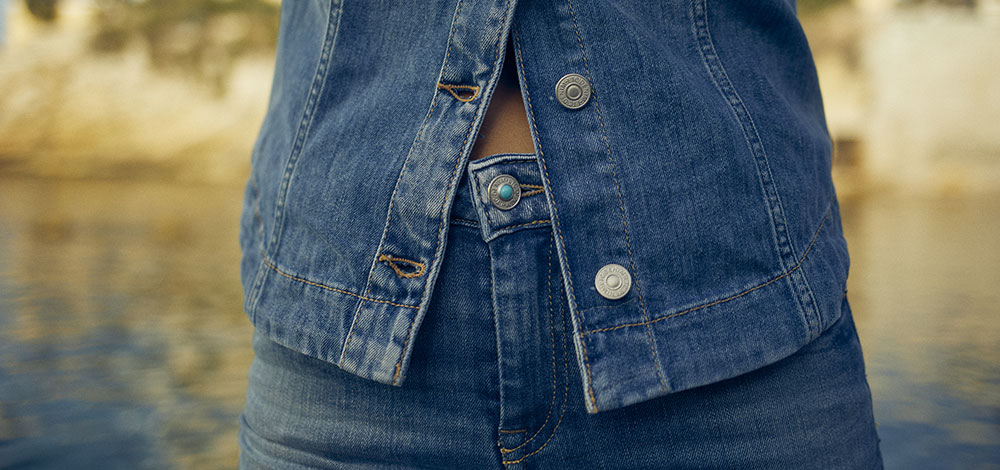
Denim is the star material of all jeans. There are still a lot of common misconceptions about denim jeans, particularly about their impact on the environment. Le Temps des Cerises explains why and reminds us of its commitment to manufacturing jeans that respect the planet and make your bum look great!
A quick reminder: what is denim?
Denim is a cotton twill made up of warp and weft threads of different colours. It's a fabric produced in Europe as far back as the 16th century. It is derived from the name "Nîmes", the town that produced wool twill, and more precisely from the contraction of "de Nîmes".
It's arguably the world's most famous soft, supple fabric, having been used in our favourite trousers and jackets for many years!
Misconception no. 1: the manufacturing phase is the most polluting part of the life of a pair of denim jeans
FALSE.
The case of the globalisation of denim production
The globalised production of denim clothing causes a significant carbon footprint. It should be noted that several regions of the world specialise in different parts of denim production, all located in different countries around the globe: for example, Africa and South America produce the cotton and South-East Asia the dye.
Le Temps des Cerises is committed to working with suppliers located in the Mediterranean basin to manufacture its jeans. The company has also introduced a supplier code of conduct to formalise its expectations regarding the environmental and social practices of its partners.
In terms of logistics, Le Temps des Cerises has succeeded in phasing out the use of air freight in favour of sea freight.
Caring for denim jeans
Cleaning denim jeans has a real impact on the environment. It accounts for half of the environmental impact of a pair of jeans. The cause: electricity consumption (using the washing machine, tumble dryer, iron, etc.), water pollution from detergents, fabric softeners, stain removers, etc.
We therefore recommend that you don't wash your jeans more than necessary and that you use environmentally friendly products.
Misconception no. 2: denim jeans are easy to recycle
FALSE.
The denim recycling process is highly complex. The various materials that make up a pair of denim jeans need to be processed: elastane, zips, buttons, rivets, etc. This involves various industrial techniques and processes to extract the cotton fibres from a pair of denim trousers so that they can be recycled. This whole process generates production waste, which greatly reduces the benefits of recycling denim jeans.
Le Temps des Cerises is careful to control the production process and of course designs high quality denim jeans that will last you for many years! Supplies are controlled and jeans are ordered around twice a month to avoid overproduction and adapt to customer demand.
As part of its “Blue Goes Green” approach, Le Temps des Cerises is also committed to working with its suppliers to study the latest innovations and technologies to limit the consumption of water and chemicals when producing its denim jeans. This is an extremely important commitment for the planet, and the results are communicated in complete transparency.
Misconception no. 3: cotton is mainly used to make clothes
FALSE.
Cotton is used in a number of industries: cosmetics, hygiene, food and textiles.
Around 2/3 of all clothing is made from polyester, some of which contains nylon and elastane obtained from petrochemicals...
Like linen, raffia and latex, cotton requires a lot of water and a lot of pesticides if it isn't organic.
Even though cotton is a natural fibre, it should be noted that cotton growing is not always environmentally friendly, and it can also have an impact on the health of the people who grow it (exposure to pesticides, etc.). Organic cotton and recycled cotton help to reduce the impact on the environment.
Le Temps des Cerises has designed 100% organic cotton eco-responsible jeans to limit the impact on the environment and is pursuing its eco-design approach for all its clothing. The OEKO-TEX label guarantees that the textiles and products used pose no risk to the environment or human health. Today, it covers at least 50% of the Le Temps des Cerises jeans collection.
Le Temps des Cerises' strong environmental commitment
Environmental commitments involved in the manufacture of Le Temps des Cerises jeans have been in place for over 15 years, including:
- An eco-friendly design approach;
- Environmental and social traceability;
- Reducing the environmental footprint of the logistics and retail network;
- Controlled production and recycling of jeans;
- Transparent communication with "Blue Goes Green" on our achievements, progress and initiatives to protect the environment.
Discover all of Le Temps des Cerises' commitments to quality denim jeans that respect the planet!


